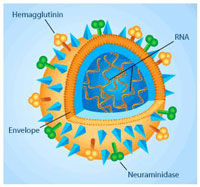GlycoVaxyn’s First Clinical Study with Bioconjugate Vaccine Initiated
Study to Evaluate Safety, Reactogenicity and Immunogenicity of Vaccine Against Shigella dysenteriae
GlycoVaxyn has commenced a Phase I clinical study with its vaccine candidate (GVXN SD133) against Shigella dysenteriae, a cause of serious intestinal infections. This is the first product from the company to enter clinical evaluation.
The objective of this single-blind, first in human study is to evaluate safety, reactogenicity and immunogenicity of the vaccine at two doses, with or without adjuvant, in 40 healthy naïve volunteers. Data from the study are anticipated by the end of 2010.
A conjugate vaccine, used to immunize against serious bacterial infections, is created by linking a sugar antigen to a carrier protein molecule. The current process to obtain such a structure is often very complex, unreliable and expensive. GlycoVaxyn’s shigella vaccine consists of a polysaccharide of Shigella dysenteriae O1 conjugated to a protein carrier. It is produced using GlycoVaxyn’s novel technology that allows the synthesis of these complex immunogenic bioconjugates via a biological process in E. Coli, which makes the production more effective and controlled.
To obtain a broad protection against the disease, GlycoVaxyn is also actively developing a multivalent vaccine against Shigella flexneri serotypes and Shigella sonnei. Conjugate vaccines are largely used to prevent important diseases such as bacteremia (bloodstream infection) and meningitis, with the market leader achieving nearly USD 3 billion in annual sales.
“The start of clinical trials with our first candidate marks a major milestone for GlycoVaxyn and will serve as validation of our bioconjugation platform,” noted Philippe Dro, CEO of GlycoVaxyn. “There is a large demand for a shigella vaccine, particularly in emerging countries. Our proprietary technology allows us not only to develop and produce a multivalent shigella vaccine but also bioconjugate vaccines against various diseases where no prevention or treatment is available.”
Most read news
Topics
Organizations
Other news from the department research and development

Get the life science industry in your inbox
By submitting this form you agree that LUMITOS AG will send you the newsletter(s) selected above by email. Your data will not be passed on to third parties. Your data will be stored and processed in accordance with our data protection regulations. LUMITOS may contact you by email for the purpose of advertising or market and opinion surveys. You can revoke your consent at any time without giving reasons to LUMITOS AG, Ernst-Augustin-Str. 2, 12489 Berlin, Germany or by e-mail at revoke@lumitos.com with effect for the future. In addition, each email contains a link to unsubscribe from the corresponding newsletter.























































